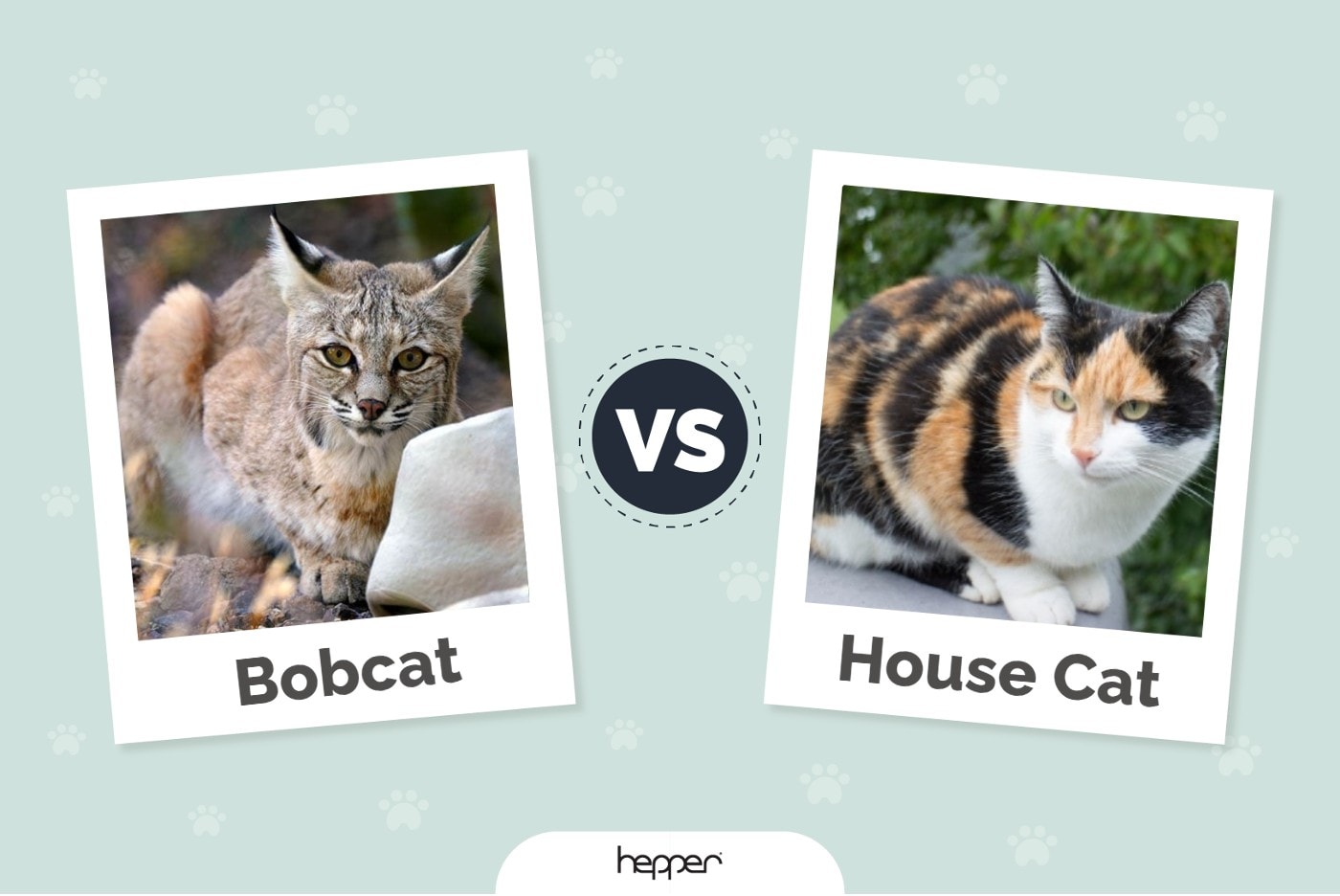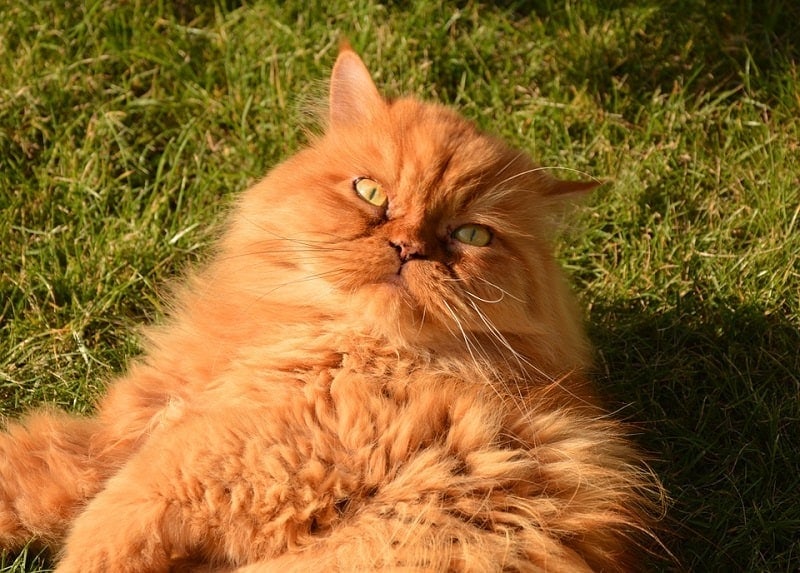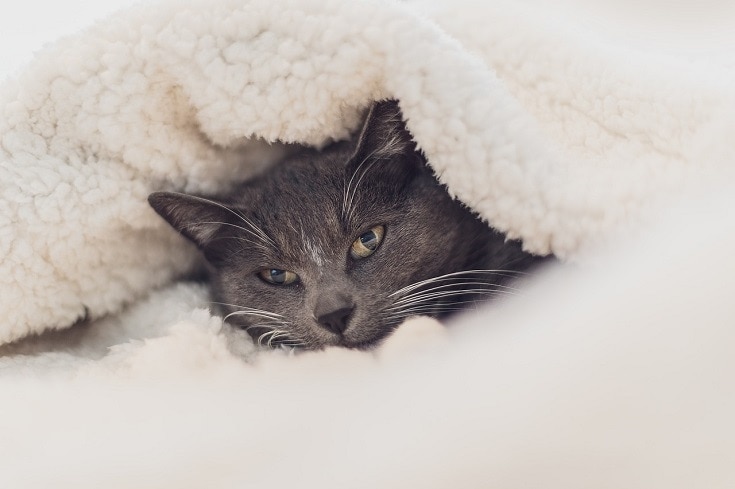Are Goldfish Plants Toxic to Cats? Vet-Reviewed Safety Facts

Updated on
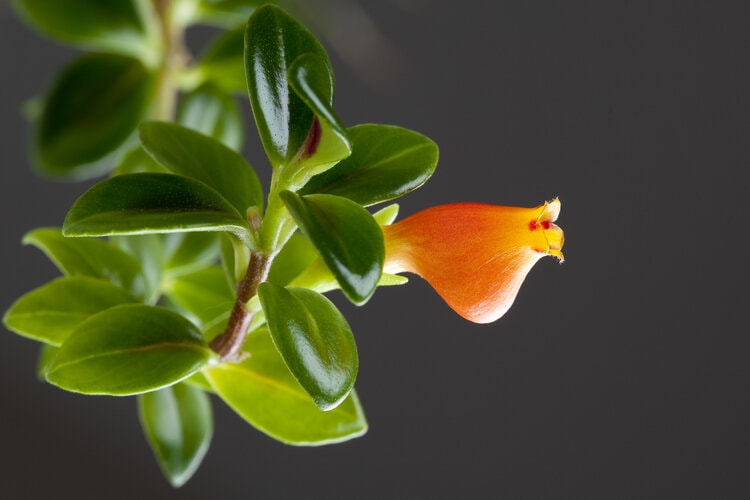
Click to Skip Ahead
Plants are a popular décor piece in many homes, and people love to grow them. They add greenery and improve interior spaces. Although they can be a stunning detail in any home, some plants can be toxic and harmful, especially to pets. That’s why it’s crucial to know which plants you have in your home and if they can harm your furry friend.
The ASPCA has confirmed that goldfish plants are non-toxic to cats.1 That said, other house plants could jeopardize your feline’s health. So, if you’re both a cat and a plant lover, read on as we discuss plants that are safe/poisonous to cats and provide more details about this topic.
What Is a Goldfish Plant?
The goldfish plant comes from Mexico, Costa Rica, and Brazil, and it’s a common houseplant that you can find in households all over the world. It got its name because its flowers resemble small goldfish. The flowers are usually orange, red, or yellow, while the leaves are dark green, shiny, and thick.
Although they are non-toxic for cats, goldfish plants are slightly poisonous and can harm humans. It’s best to keep this plant away from your kids, but your feline should be just fine if they get in contact with this plant.
The 5 Plants to Avoid If You Have a Cat
There are plants that you should avoid if you have a cat. Some are very poisonous and can cause severe issues, while others cause milder signs. Here is a list of plants that you shouldn’t keep in your household if you have a kitty.
1. Aloe Vera

Although aloe vera is a stunning plant that has various usages, it’s highly toxic to cats, so you should avoid it at all times. If your feline eats aloe vera, they can vomit, become lethargic, or even have diarrhea. If you still decide to keep aloe vera in your home due to its benefits for humans, place it in an area where your cat cannot reach it.
2. Lily

Lily is a beautiful plant, but unfortunately, the entire plant is toxic to cats. If your cat accidentally licks, eats, or even rubs on a lily, they could quickly develop kidney failure. We strongly suggest keeping away from this plant if you’re a cat owner.
3. Azalea
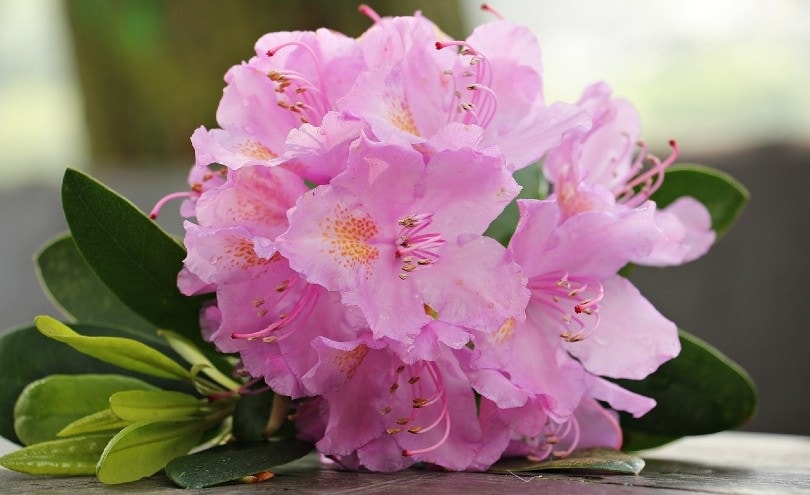
Azalea is another plant on the list of toxic plants to cats. Your feline won’t get sick if they touch the plant, but they will if they eat the flowers or leaves.
4. Begonia

Begonia is a plant with a gorgeous appearance, but we do not recommend growing begonias if you have cats. They are poisonous, so your cat can suffer if they eat a begonia. The side effects that it causes are not life-threatening, but your kitty will still need medical care.
5. Caladium
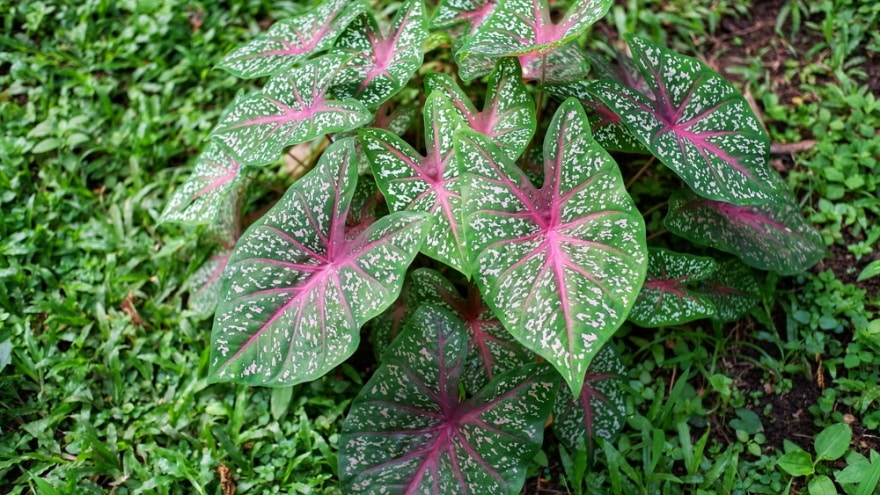
Caladium is toxic for most pets, including cats. The poison is saturated everywhere, though it’s the strongest in the leaves.
Which House Plants Are Non-toxic for Cats?
Of course, not all plants are toxic to cats, so there’s no need to worry. There are hundreds of non-toxic plants you can keep in your home without having to worry about possible problems with your feline.
If you’d like to have houseplants but are worried about your cat’s health, check out this list, as we have provided some stunning plant options that ASPCA approves as non-toxic for cats.
1. Spider Plant
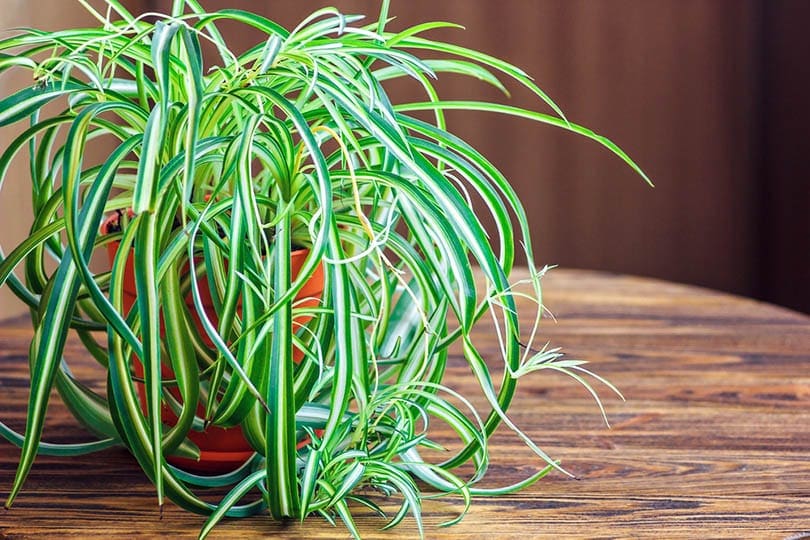
The spider plant is an adaptable houseplant that is non-toxic for cats, so you can keep it in your home without having to worry about your feline. These plants are easy to maintain, and your kitty can play with them safely.
2. Air Plant
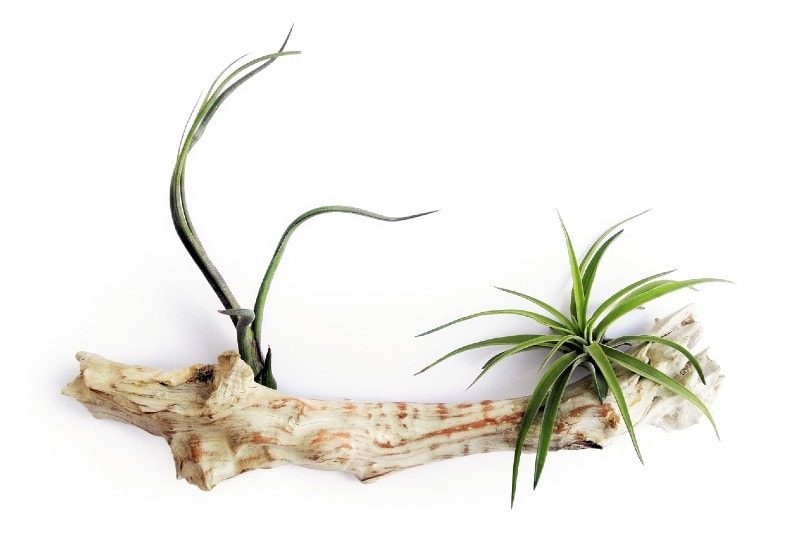
If you want a unique house plant that’s not poisonous or harmful to kitties, choose an air plant. They are very convenient because they do not need soil, and they are very low-maintenance.
3. Parlor Palm
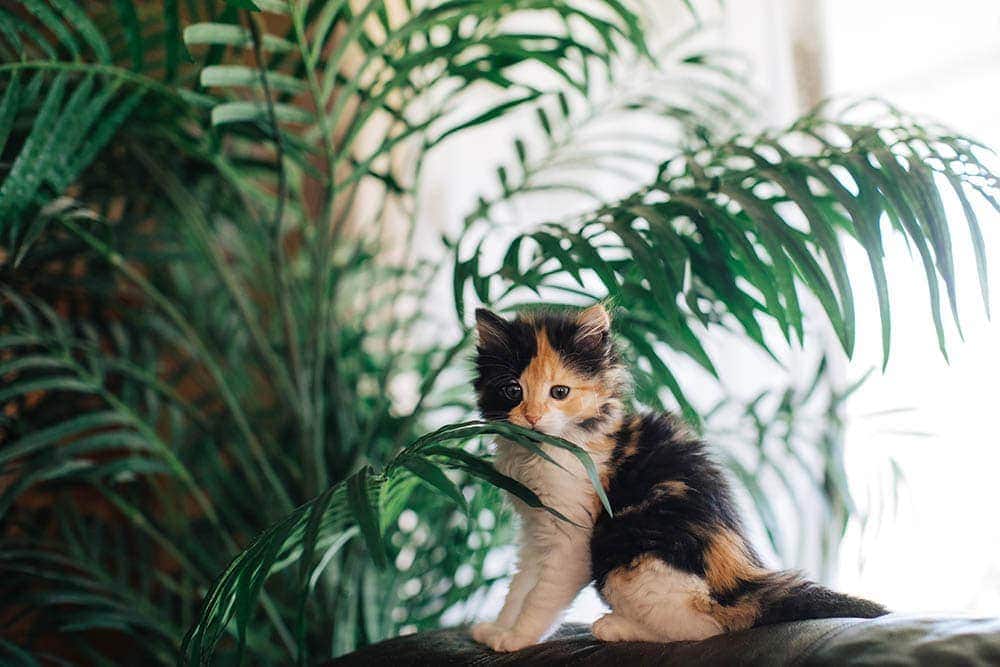
Here comes a perfect plant for people who love plants and kittens. The parlor palm is non-toxic, beautiful, and easy to take care of, which you will love. It also has air-purifying qualities, so both you and your cat will be breathing fresh air.
4. Orchid
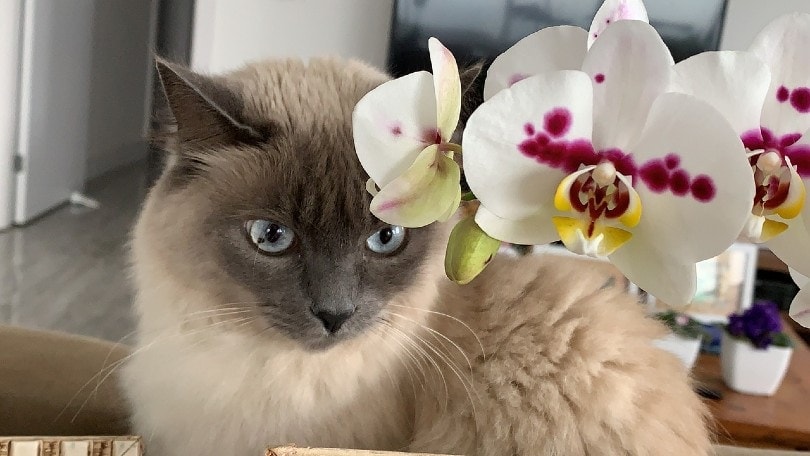
Orchid is among the most commonly grown houseplants, and since it’s not poisonous, even if you have a cat, there’s no reason you cannot have an orchid in your home. They are a bit demanding compared to some other plants, but your home will be filled with stunning flowers.
5. Zinnia

Zinnia is a colorful flower that you can grow in your home. They are undemanding, so as long as you water them regularly and keep them in a sunny area, they will make your house beautiful.
Why Do Cats Eat Plants?
Cats are carnivores, and they need meat in their nutrition to survive. However, cats nibbling on plants or grass is normal behavior, though there’s no exact explanation for it.
Some believe that cats eat plants because of a dietary deficiency and that they obtain nutrients, vitamins, and folic acid from eating plants. There are also theories that cats eat plants to help them digest or get rid of swallowed hairballs. Others say that when a cat feels ill, they will consume a plant to vomit. A cat constantly eating plants can also indicate that your feline is stressed or anxious.
Signs of Plant Poisoning
- Drooling/salivation
- Irritation of the eyes, skin, or gums
- Vomiting
- Diarrhea
- Coma
- Collapse
- Confusion
- Twitching
- Lethargy
- Poor appetite
- Increased thirst
What If My Cat Eats a Poisonous Plant?
If you see your cat eating a poisonous plant or notice any of the aforementioned signs, you’ll need to react immediately. Primarily, ensure that the cat doesn’t eat any more of the plant, and write down when the incident happened. If your cat vomited or had diarrhea, take a sample to bring to the vet.
Once you’re with a veterinarian, explain the situation. Time is vital, so stay calm and react promptly. Your vet will likely ask you to bring the plant with you so they can quickly determine the correct treatment.
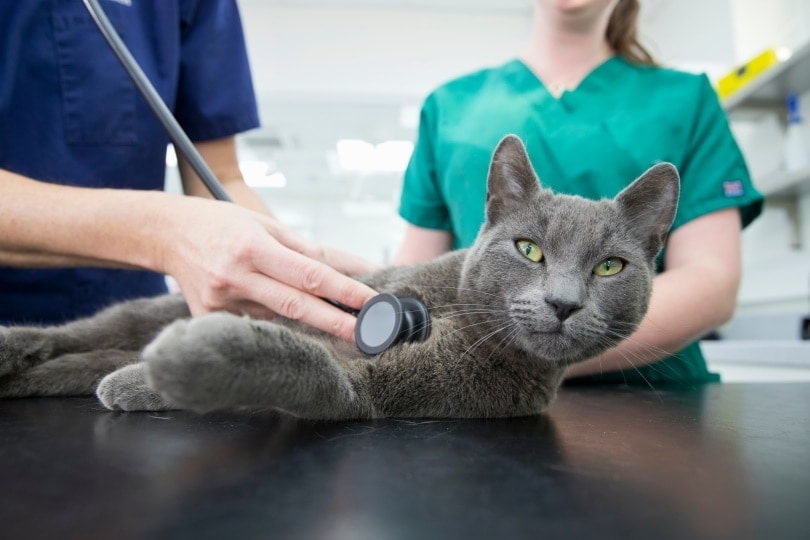
What Will the Vet Do?
There are a couple of different things your vet could do, depending on which plant your kitty has eaten and the signs that they’re exhibiting. If decontamination is needed, your vet will probably give medication to your cat to get rid of toxins from their digestive tract.
If your feline has already become lethargic, the vet might give them an IV, which will flush metabolites and toxins from their body. The vet will also do blood or even urine tests. That way, they can ensure that there’s no kidney failure or other fatal outcomes.
Prevention
There’s no way to ensure that your cat will never eat a plant, so it’s best not to have poisonous plants in your household in the first place. If you’re unsure if a plant is toxic to your furry friend, you can always check out ASPCA, a reputable website that has all the information about non-toxic and poisonous plants for cats.
 Conclusion
Conclusion
Goldfish plants are not toxic to cats, but unfortunately, there are a bunch of plant species that are harmful to them. Goldfish plants are beautiful flowers that are safe to have around cats and thus, a great addition to feline-loving households.
Featured Image Credit: Olga_Anourina, Shutterstock




